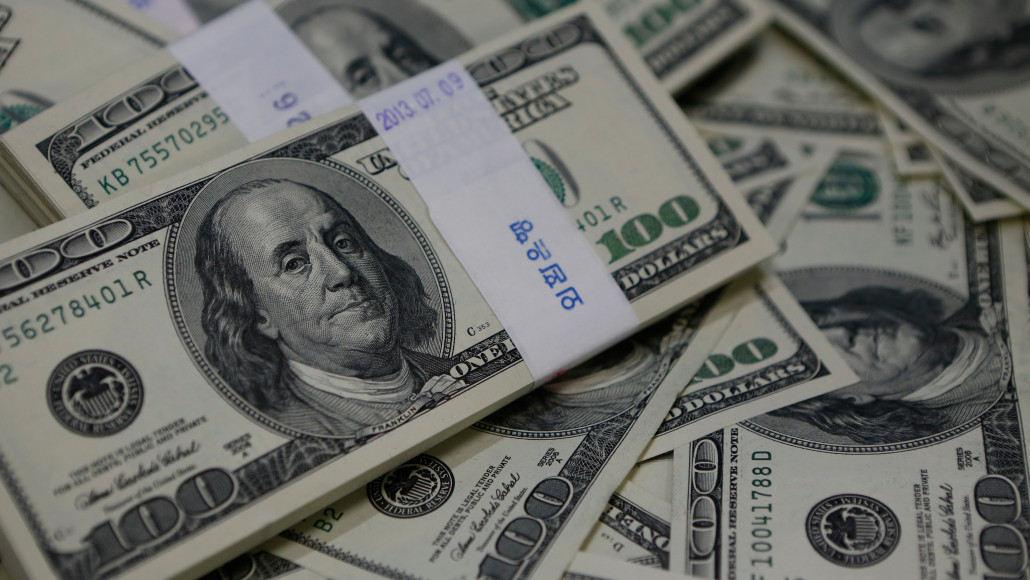BRICS: World Reserves in US Dollars Hit Historic Lows
21.08.2024 12:00 2 min. read Alexander Stefanov
The central banks of many developing countries are increasingly diversifying their reserves away from the US dollar and into gold and local currencies.
This shift is partly driven by concerns about the $35 trillion US government debt, which could have serious implications for global markets in the event of an economic downturn or recession. At the forefront of this movement are the BRICS countries in particular, which are working to reduce their dependence on the dollar and to promote their local currencies.
According to the Atlantic Council, the share of global reserves held in US dollars has fallen from 72% in 2002 to 59% in 2024. This 13% decline over the past two decades reflects a broader trend among developing countries to reduce their reliance on the dollar. As a result, the renminbi, China’s local currency, has seen its share of global reserves rise, increasing by 3% over the same period.
In addition to the decline in the dollar’s share, the euro also saw a significant decline. The euro’s share of global reserves has declined by 19%, from 28% in 2008 to 19% in 2024. This 9% reduction in 16 years highlights the shift away from the euro, while the yuan has seen significant growth, tripling its share of reserves since 2016.
The BRICS countries are actively promoting the use of local currencies for international transactions, putting further pressure on the US dollar. The move towards de-dollarization could potentially lead to a further reduction in the role of the dollar in global reserves, potentially falling below 50% in the coming decades. Such a shift could have significant implications for the U.S. economy, including potential financial instability and market disruptions.
Maria Zakharova, a spokeswoman for the Russian Foreign Ministry, highlighted these trends, noting the yuan’s substantial rise alongside the decline of the U.S. dollar and the euro.
If the trend towards de-dollarisation persists, it could have profound implications for various sectors of the US economy. Reduced global demand for the leading currency could lead to higher borrowing costs for the US government and increased volatility in financial markets. The potential for financial catastrophes and stock market crashes could become more pronounced if these trends persist.
-
1
Russia’s Oil Revenues Strained as Exports Decline Again
24.06.2025 18:00 2 min. read -
2
Recession Fears Linger as Economic Signal Flashes Long-Term Warning
25.06.2025 9:00 2 min. read -
3
Robert Kiyosaki Predicts When The Price of Silver Will Explode
28.06.2025 16:30 2 min. read -
4
Trump Targets Powell as Fed Holds Rates: Who Could Replace Him?
27.06.2025 9:00 2 min. read -
5
U.S. PCE Inflation Rises for First Time Since February, Fed Rate Cut Likely Delayed
27.06.2025 18:00 1 min. read
Key U.S. Economic Events to Watch Next Week
After a week of record-setting gains in U.S. markets, investors are shifting focus to a quieter yet crucial stretch of macroeconomic developments.
Robert Kiyosaki Predicts When The Price of Silver Will Explode
Robert Kiyosaki, author of Rich Dad Poor Dad, has issued a bold prediction on silver, calling it the “best asymmetric buy” currently available.
U.S. PCE Inflation Rises for First Time Since February, Fed Rate Cut Likely Delayed
Fresh data on Personal Consumption Expenditures (PCE) — the Federal Reserve’s preferred inflation gauge — shows inflation ticked higher in May, potentially delaying the long-awaited Fed rate cut into September or later.
Trump Targets Powell as Fed Holds Rates: Who Could Replace Him?
Federal Reserve Chair Jerome Powell is once again under fire, this time facing renewed criticism from Donald Trump over the Fed’s decision to hold interest rates steady in June.
-
1
Russia’s Oil Revenues Strained as Exports Decline Again
24.06.2025 18:00 2 min. read -
2
Recession Fears Linger as Economic Signal Flashes Long-Term Warning
25.06.2025 9:00 2 min. read -
3
Robert Kiyosaki Predicts When The Price of Silver Will Explode
28.06.2025 16:30 2 min. read -
4
Trump Targets Powell as Fed Holds Rates: Who Could Replace Him?
27.06.2025 9:00 2 min. read -
5
U.S. PCE Inflation Rises for First Time Since February, Fed Rate Cut Likely Delayed
27.06.2025 18:00 1 min. read


